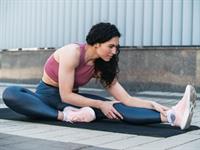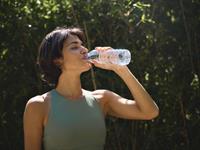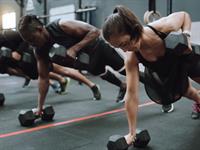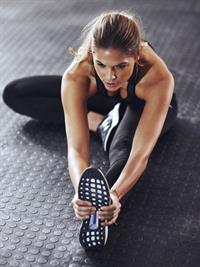Athletes have strict daily routines to stay fit and perform well in their sports. They use Present Simple to describe their habits and routines. Let’s explore the daily life of an athlete, focusing on some keywords.
Present Simple
Revise what you have learned before in grade 7 how to talk about daily routine using Present Simple and spelling rules for 3rd person singular.
The Present Simple tense is used to describe habits, routines, facts, and general truths. We often use it to talk about things that happen regularly, like daily activities or general observations.
For I, you, we, and they: Use the base form of the verb.
Example:
I eat breakfast at 7 AM.
They go to school every day.
For he, she, and it: Add -s or -es to the base form of the verb.
Example:
She eats breakfast at 7 AM. (add -s)
He goes to school every day. (add -es)
| Subject |
Base form
of Verb
|
Present Simple Form |
| I | work | I work in an office. |
| you | play | You play football. |
| he | work | He works in an office. |
| she | play | She plays football. |
| it | swim | It swims well. |
| we | swim | We swim in the pool. |
| they | watch | They watch TV. |
Rules for verb endings
1. In general: add -s
work — works
eat — eats
play — plays
swim — swims
write — writes
2. Verbs ending in consonant + -y: add -ies
study — studies
cry — cries
try — tries
spy — spies
fly — flies
3. Verbs ending in -o, -sh, -tch, -x, -ss: add -es
go — goes
wash — washes
watch — watches
mix — mixes
kiss — kisses
Piemērs:
Kristaps Porzingis is a professional basketball player known for his impressive skills on the court. He plays as a forward and stands at an impressive height of 7 feet 3 inches. Every morning, he starts his day with a nutritious breakfast to fuel his body. After breakfast, he heads to the gym for a rigorous workout. During his training sessions, he focuses on strength, agility, and shooting drills. He practices his footwork and studies game footage to improve his performance. Kristaps also emphasizes recovery, so he includes stretching and ice baths in his routine. On game days, he follows a strict warm-up routine to prepare for the competition. Throughout the season, he maintains a balanced diet to stay in top shape. Kristaps Porzingis is dedicated to his craft and consistently strives to be a better player.
Memorise these words that will help you describe sports routines!

warm up — [wɔːrm ʌp] — a preparatory activity to increase heart rate and flexibility before training, iesildīšanās
Example: Before the game, we always do a warm-up to get ready.

stretching — [stretʃɪŋ] — exercise to improve flexibility and prevent injury, staipīšanās
Example: Stretching helps prevent injuries when we play sports.

hydration — [haɪˈdreɪ.ʃən] — the act of consuming water or fluids to maintain body fluid levels, hidrācija
Example: It is important to drink water for good hydration during sports.

endurance — [ɪnˈdʒʊə.rəns] — the ability to sustain physical activity over time, izturība
Example: Running regularly improves our endurance for long races.

nutrition — [njuːˈtrɪʃ.ən] — the intake of food that fuels the body for training and performance, uzturs
Example: Eating fruits and vegetables is important for good nutrition when training.

strength training — [streŋθ ˈtreɪ.nɪŋ] — exercises designed to improve muscle strength and power, spēka treniņš
Example: Strength training helps us become stronger and improve our sports performance.

cardio — [ˈkɑːr.di.oʊ] — short exercises, aimed at improving heart and lung function, kardio
Example: We do cardio exercises, like jogging, to keep our hearts healthy.

rest — [rest] — periods of relaxation to allow the body and mind to recover, atpūta
Example: Taking rest days is important so our bodies can recover and stay fit.

discipline — [ˈdɪs.ə.plɪn] — the ability to maintain consistency and commitment in training, disciplīna
Example: Discipline in practice helps athletes improve their skills over time.

injury prevention — [ˈɪn.dʒər.i prɪˈven.ʃən] — activities aimed at reducing the risk of physical harm or strain, traumu profilakse
Example: Proper warm-up and stretching are essential for injury prevention.

recovery meal — [rɪˈkʌv.ər.i mɪəl] — nutrient-rich food consumed after training to restore energy levels, atjaunošanās ēdiens
Example: After practice, I eat a recovery meal with protein to help my muscles heal.

sleep — [sliːp] — a critical recovery phase where the body repairs tissues and restores energy, miegs
Example: Getting enough sleep is crucial for athletes to feel strong and perform well.
Learn more about Present Simple tense here.